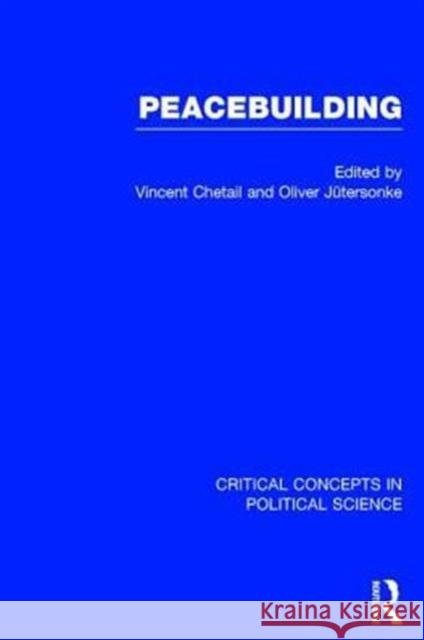Peacebuilding » książka
Peacebuilding
ISBN-13: 9780415624329 / Angielski / Twarda / 2014 / 1784 str.
The controversies raised by the withdrawal of US troops from Afghanistan, the situation in Iraq, and the management of the 'Arab Spring' uprisings have demonstrated anew that achieving peace is not merely a matter of ending wars. Indeed, the consequences of conflicts often extend far beyond the termination of local hostilities, impeding the reconstruction of war-torn societies, and making the resumption of violence more likely than not. Moreover, in today's interdependent world, such consequences may jeopardize not only the stability of directly concerned states, but may also undermine regional, even global, peace. As a result, the call to build genuine, just, and sustainable peace conditions-exemplified by the establishment in 2006 of the UN Peacebuilding Commission, Fund, and Support Office-has never been more urgent, and underscores the pressing need for a comprehensive analysis and understanding of the critical concept of 'peacebuilding'. This new four-volume Routledge Major Works collection answers such a need by bringing together the best and most influential scholarship from a wide range of academic disciplines to illuminate the idea and challenges of peacebuilding.Volume I addresses the concepts, actors, and institutions of peacebuilding. Volume II, meanwhile, assembles key works to focus on the challenges of security, welfare, justice, and the rule of law. Volume III is devoted to democratization, the state, and civil society, while Volume IV brings together major works on the implementation of peacebuilding, in particular reconciling international standards and local dynamics. With a full index, together with a comprehensive introduction, newly written by the learned editor, which places the collected material in its historical and intellectual context, Peacebuilding is an essential work of reference. Moreover, its interdisciplinary and international perspective is certain to secure the collection a broad readership, including scholars, advanced students, policymakers, and practitioners.











